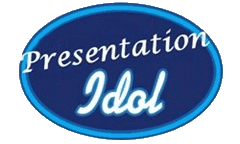
Today was the Presentation Idol competition I blogged about a couple of weeks ago. Unfortunately, I didn’t win – but believe me when I say I was up against some serious competition. I think I was about in the middle of the pack – better than some but clearly not as good as others.
Since I made a big deal about asking for people ideas on how to present my topic of choice – external contributions to Microsoft Open Source projects – I decided I’d post my deck and my script. Yes, I said script. Usually, I don’t script what I’m going to say word for word like this. But with only three and a half minutes to present, I thought I’d be as precise as possible. You’ll notice some lines near the end are in italics – those are ones I planned on cutting if I was in danger of going over the time limit.
Feedback, as usual, is most welcome.
Hello, my name is Harry Pierson. I’m a program manager in the Visual Studio Languages group and I’m here to talk about what I would most like to do to improve Microsoft.
At Microsoft, we care an awful lot about the software ecosystem. Searching for the word “ecosystem” on Microsoft.com returns nearly eight thousand results. We talk about the ecosystem in our marketing and in our press releases.
In 2007, we commissioned a study of the global economic impact of the Microsoft ecosystem. In a word, it’s massive. It’s responsible for nearly 15 million jobs and drives over half a trillion dollars a year in tax revenue worldwide.
No wonder we care about the ecosystem so much.
But clearly, we’re not the only ones who care. Microsoft represents a fairly small percentage of the overall ecosystem. We earn just over 11% of the total revenue and account for half of one percent of the total employment within the ecosystem.
That means there are an awfully large number of people with a vested interest in the continuing success of the Microsoft platform.
With this vast ecosystem in mind, I want to talk about Open Source. Microsoft and Open Source are often portrayed as enemies. But in DevDiv, we have several high profile Open Source projects. I work on IronPython, which has been Open Source for over four years. More recently, the ASP.NET and Extensibility Framework teams have decided to release some projects as Open Source.
I believe we should have more Open Source projects at Microsoft. But more importantly, I feel that we need to go beyond the textbook definition of Open Source. Our Open Source projects are typically closed to external contributions. But for the ecosystem at large, Open Source isn’t just about the availability and distribution terms of the source code. It also implies a collaborative development model - parties working together across organizational boundaries, contributing directly to projects in question.
The thing I would most like to change about Microsoft would be to let members of our ecosystem contribute code to our Open Source projects.
I can tell you from personal experience, there are members of the IronPython community who would leap at the opportunity to contribute code. And their engineering prowess and real world would benefit the IronPython project tremendously. But the legal process for getting permission to take contributions is onerous. Worse, the legal stigma attached to code that isn’t 100% pure Microsoft intellectual property makes it nearly impossible for any other group inside Microsoft to build on it.
I realize the onerous legal process is there for a reason: to protect Microsoft’s interests. But improving IronPython and Open Source projects like it isn’t just in Microsoft’s best interest; it’s in the best interest of our ecosystem as well. We need a legal framework that protects Microsoft while allowing for code contributions. Developing such a framework will be a challenge. But competitors like Sun, Google and IBM have already demonstrated that it’s not insurmountable.
Half a trillion dollars annually. 15 Million jobs. 42% of the IT workforce. The Microsoft ecosystem is the envy of the industry. And Microsoft is in a unique position to harness the collective experience and engineering prowess of that ecosystem while simultaneously dispelling the myth that we are an enemy of Open Source.
It’s time we make this change.
Thank you very much.






Comments: